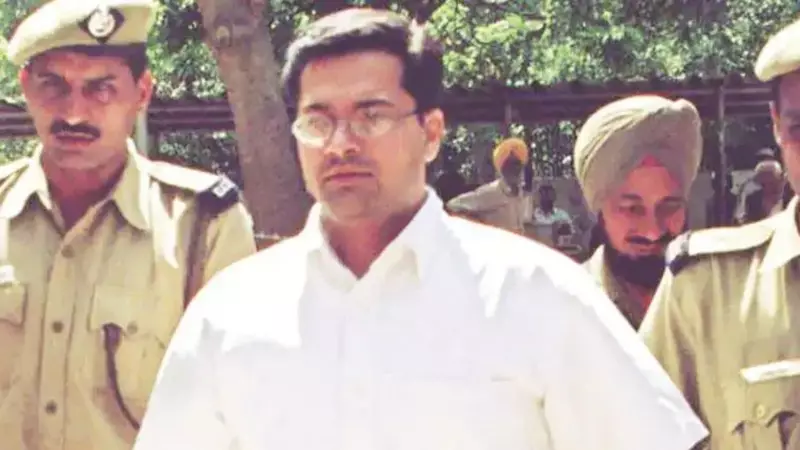
Indri Whiskey: Global Acclaim Meets Troubled History
India's first internationally successful single malt whiskey, Indri, has taken the global spirits market by storm, winning prestigious awards and critical acclaim. However, this success story carries the heavy burden of a dark past that continues to divide opinions across the nation.
Produced by Piccadily Distilleries, Indri recently claimed the gold medal at the Tokyo Whiskey & Spirits Competition 2025 and received glowing reviews at another prestigious fair in New York. Connoisseurs describe this Indian spirit as a richly textured blend featuring notes of caramel, honey, and almond butter, marking a significant achievement for a country breaking into an industry long dominated by European producers.
The Ghost of Jessica Lall Case Returns
Behind Indri's stylish packaging and dramatic Hindi logo lies a controversial figure - Manu Sharma, whose name remains inextricably linked to one of India's most infamous crimes. For those unfamiliar with the case, Sharma served a full 16-year prison term for the 1999 murder of model Jessica Lall at an unlicensed Delhi bar, a crime that captured national attention and sparked widespread outrage.
The ethical dilemma surrounding Indri whiskey became particularly evident when a friend of the original article's author nearly choked with rage upon discovering the drink's origins at a dinner party. "How can you spend a rupee on that guy and make him richer?" he argued, resurrecting memories of how Sharma initially seemed poised to escape justice before ultimately being convicted.
Redemption Versus Justice: The Eternal Debate
This situation raises profound questions about rehabilitation, redemption, and societal forgiveness. While some argue that 26 years after the crime, Sharma has earned the right to reintegrate into society and pursue legal employment, others respond with contemptuous dismissal.
The controversy intensifies considering that Sharma has chosen to build his future in the alcohol industry - the very context that fueled the tragic events of 1999. This choice challenges our collective imagination, where we often expect those who have committed grave wrongs to pursue higher purposes in their second acts, demonstrating clear penitence for past misdeeds.
Drawing parallels to literary classics, the author references Dostoevsky's Crime and Punishment, where protagonist Raskolnikov experiences overwhelming guilt after committing murder. However, real-life scenarios often unfold differently from fictional moral treatises, leaving society to grapple with complex questions about moving forward when legal justice has technically been served.
The lingering impact of horrific crimes extends across generations, with no statute of limitations on societal memory. The article references Delhi's enduring trauma from cases like the 1978 Billa-Ranga kidnappings, suggesting that for figures like Sharma, freedom comes with its own form of perpetual punishment - the inescapable shadow of past actions.
A Complex Verdict on Quality Versus Conscience
In a surprising conclusion, the original author admits to trying Indri whiskey and finding it superb, acknowledging the professional achievement while wrestling with its moral implications. This honest assessment captures the central conflict: can we separate artistic or professional excellence from the creator's personal history?
The piece ultimately suggests that while society must grapple with these difficult questions, there's wisdom in recognizing that those who err terribly remain human, with decades of life ahead to negotiate. Breaking through professionally is challenging for anyone, and perhaps even more so for those carrying the weight of a controversial past.
As Indian products like Indri gain international recognition, the conversation around their creators' histories reminds us that success stories often contain complex layers that demand thoughtful consideration from consumers and society alike.






